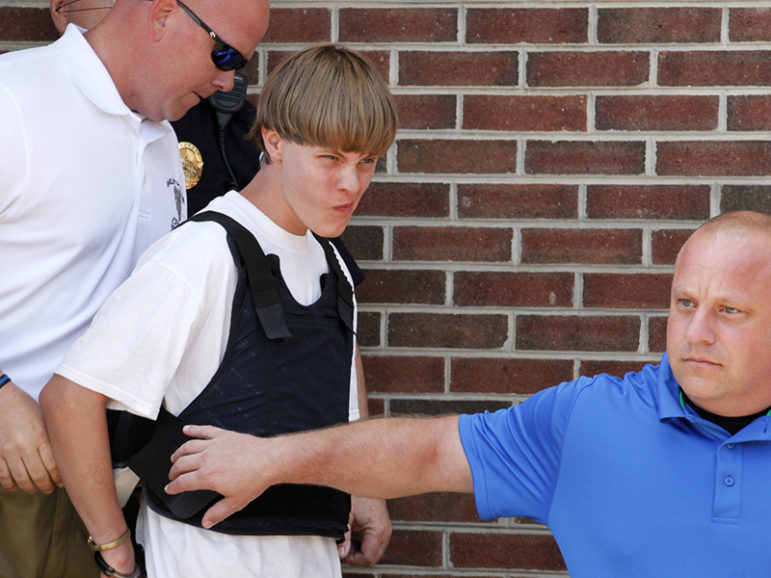CHARLESTON, S.C. (Reuters) White supremacist Dylann Roof, facing the death penalty for the hate-fueled killings of nine black churchgoers in South Carolina, told jurors at his federal trial that he is not mentally ill but did not say whether he wants to live.
The 22-year-old said during a short opening statement on Wednesday (Jan. 4) that he was representing himself for the penalty phase in Charleston because he did not want the jury to hear any of the mental health evidence his lawyers had sought to introduce in an effort to spare him from execution.
“There’s nothing wrong with me psychologically,” Roof told the jury, making no mention of the crime or the racist ideology prosecutors have said spurred the 2015 massacre at the historic Emanuel African Methodist Episcopal Church.
The same jury that last month found Roof guilty of all 33 federal counts of hate crimes resulting in death, obstruction of religion and firearms charges will now hear a case about whether he should be put to death or sentenced to life in prison without possibility of parole.
On Monday, U.S. District Judge Richard Gergel ruled that Roof was mentally fit to stand trial and act as his own lawyer.
Roof described for jurors in a calm voice how he had been forced to undergo two mental health evaluations after his attorneys questioned his competency.
He acknowledged that his comments would seem “out of place” following the opening statement by Assistant U.S. Attorney Nathan Williams, who moments earlier said Roof deserved to be executed.
Williams highlighted Roof’s months of planning, his lack of remorse and his motivation for carrying out the crime that shocked the nation.
“This defendant’s horrific acts justify the death penalty,” said Williams, who showed jurors photos of each victim. “He killed them because of the color of their skin, because he thought they were less than people.”
Roof confessed to killing the parishioners who had welcomed him to their Bible meeting and had their eyes closed in prayer when he opened fire.
Six weeks after his arrest, jailers found a note written by Roof in his cell, Williams said. In it, he said his actions to protect the white race had been worthwhile.
“I am not sorry,” Roof wrote. “I have not shed a tear for the innocent people I killed.”
(Writing by Colleen Jenkins)





